The removal of VAT on equipment in the low emission slurry spreading scheme (LESS) has been called for by IFA as part of its submission for the 2019 nitrates derogation review.
It also wants grant aid for LESS equipment under TAMS increased from 40% to 60% for individual farmers.
The further incentives for low emission spreading form part of a wider proposal to implement a “sustainable development programme (SDP)”.
IFA president Joe Healy said derogation farmers contribute over €900m in agricultural output and the mid-term review was an opportunity to support these farmers. He emphasised that they must not be threatened with further regulations.
Roadmap
Implementation of the Teagasc climate roadmap, published in June 2018, should also be made a priority according to the submission. The roadmap sets out how to displace on-farm fossil fuel use, support greater farm efficiencies and recognise carbon sequestered by farms.
Support for on-farm renewables and anaerobic digestion is a key part of the submission. Grid connection, price support and planning restrictions are areas where changes are sought to facilitate their installation.
The contribution of fertiliser and manure to ammonia emissions make them a key focus for the review. Protected urea can reduce ammonia losses to the atmosphere by up to 80% compared to standard urea.
Due to the higher price of protected urea, the IFA has called for a Department-backed incentive scheme to close the price gap. A similar scheme is sought for lime to support its increased usage.
To encourage farmers to consider slurry additives a recommended list similar to grass varieties has been proposed. Such a list would test and verify products’ claims.
Engagement
Thomas Cooney, IFA environment chair said: “Farmers are fully engaged in positive water, air and climate action, with farmers in derogation using resources such as phosphorous with increased efficiency.
“All of this action is contributing to falling emissions intensity in our livestock sector, strong demand for access to air quality improvement schemes such as LESS; as well as climate, biodiversity and water improvement schemes, such as GLAS”.
Read more
Loss of nitrates derogation would undermine progress
Derogation farms generate €900m per year – IFA
The removal of VAT on equipment in the low emission slurry spreading scheme (LESS) has been called for by IFA as part of its submission for the 2019 nitrates derogation review.
It also wants grant aid for LESS equipment under TAMS increased from 40% to 60% for individual farmers.
The further incentives for low emission spreading form part of a wider proposal to implement a “sustainable development programme (SDP)”.
IFA president Joe Healy said derogation farmers contribute over €900m in agricultural output and the mid-term review was an opportunity to support these farmers. He emphasised that they must not be threatened with further regulations.
Roadmap
Implementation of the Teagasc climate roadmap, published in June 2018, should also be made a priority according to the submission. The roadmap sets out how to displace on-farm fossil fuel use, support greater farm efficiencies and recognise carbon sequestered by farms.
Support for on-farm renewables and anaerobic digestion is a key part of the submission. Grid connection, price support and planning restrictions are areas where changes are sought to facilitate their installation.
The contribution of fertiliser and manure to ammonia emissions make them a key focus for the review. Protected urea can reduce ammonia losses to the atmosphere by up to 80% compared to standard urea.
Due to the higher price of protected urea, the IFA has called for a Department-backed incentive scheme to close the price gap. A similar scheme is sought for lime to support its increased usage.
To encourage farmers to consider slurry additives a recommended list similar to grass varieties has been proposed. Such a list would test and verify products’ claims.
Engagement
Thomas Cooney, IFA environment chair said: “Farmers are fully engaged in positive water, air and climate action, with farmers in derogation using resources such as phosphorous with increased efficiency.
“All of this action is contributing to falling emissions intensity in our livestock sector, strong demand for access to air quality improvement schemes such as LESS; as well as climate, biodiversity and water improvement schemes, such as GLAS”.
Read more
Loss of nitrates derogation would undermine progress
Derogation farms generate €900m per year – IFA




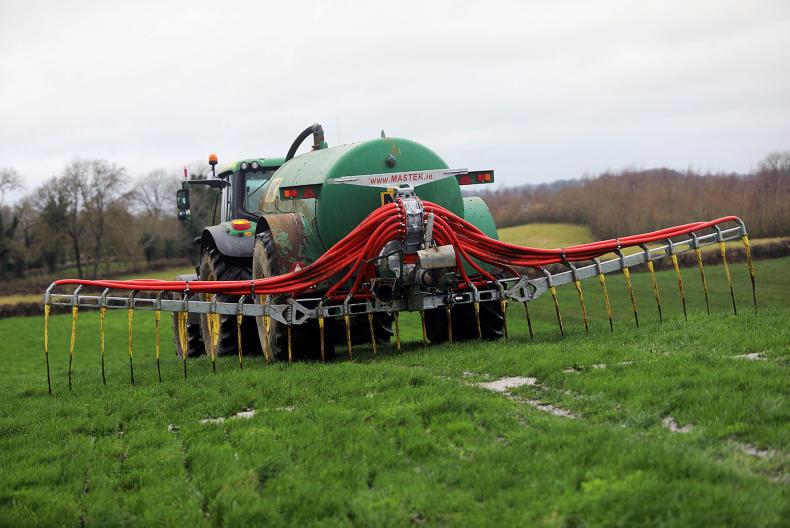
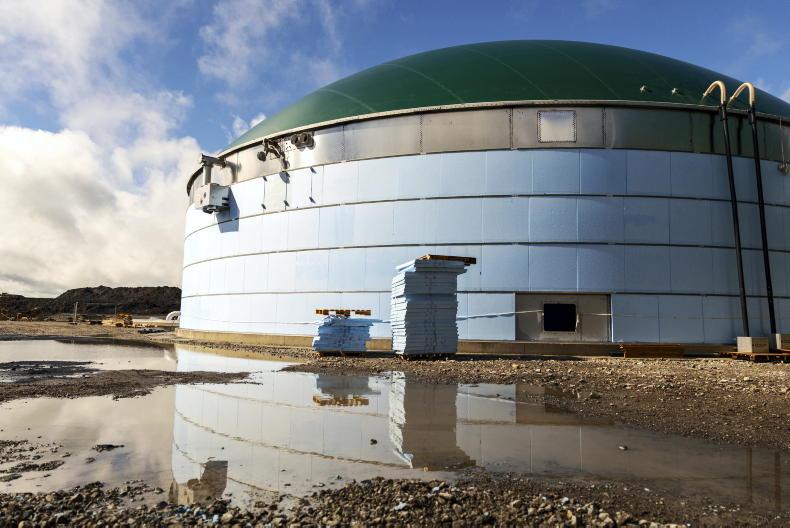

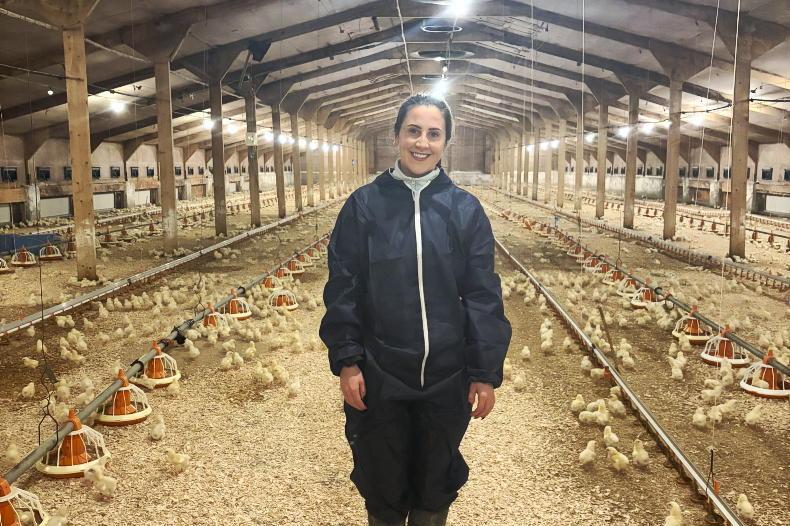
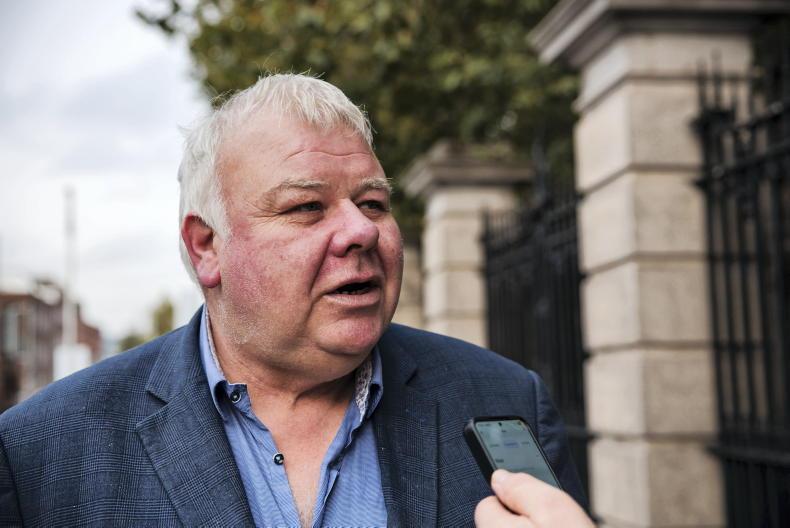
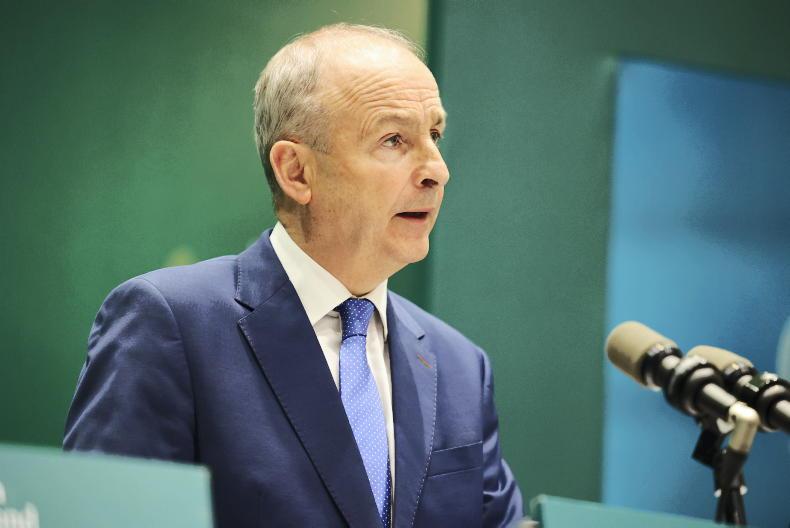
SHARING OPTIONS